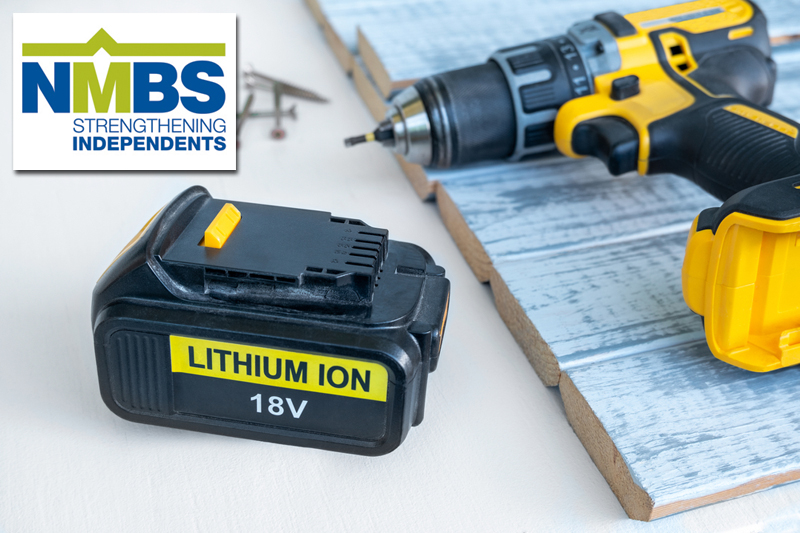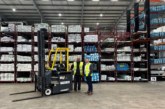
According to the NMBS, the near-standstill in lithium battery recycling is causing the UK to sleepwalk into a waste crisis – and needs Government support to fast-track a solution.
The call comes from independent merchant buying society NMBS and a leading power tool manufacturer, after setting up a pilot scheme to bring industry together to address the log jam in UK lithium battery recycling. Indeed, a lack of capacity to process and store waste lithium batteries in the country alongside difficulties with exporting the product to overseas recycling facilities have all but halted current progress.
The pilot was set up in the wake of the rapid rise in use of lithium-iron and lithium-ion batteries across the building industry through products such as power tools. More recycling availability would also help stem the tide of 600 million batteries thrown to landfill in the UK annually – a significant cause of soil and water pollution.
NMBS Chief Executive Officer Chris Hayward said: “This is a pollution problem we have been sleepwalking into for more than a decade, made worse by a failure of legislation to keep up with the rapid increase in lithium battery use. Currently, only 18,000 tonnes of portable batteries are recycled in the UK, while circa-40,000 tonnes were sold in the UK in 2020. To compound this, the only major UK lithium battery recycling facility solely deals with electric vehicle batteries, meaning others must be exported – and these routes are now backlogged.
“We need Government to move forward with clear regulation on lithium-iron recycling, provide impetus to grow UK processing facility capacity, and increase the ease and availability of licences to export waste.”
Currently, most lithium-iron and lithium-ion batteries are exported for recycling due to the lack of processing capability in this country. Exports are also hindered by concerns about the product’s fire and explosion risk.
Inaddition, storage is limited to approved battery treatment operators (ABTOs) – and these are virtually at capacity due to complications with exports and oversaturation of EU recycling facilities, forcing export to the US and further afield. Meanwhile, only approved battery exporters (ABEs) can transport lithium batteries around the globe. They require specific licences for different EU countries – often with differing packing and transport requirements.
Now, NMBS is urging Government to loosen current restrictions around ABTOs to enable sorting of batteries prior to the start of the recycling journey. This would create capacity by enabling more efficient transfer to ABEs for export.
Chris Hayward added: “We have been working with a power tool manufacturer and starting to involve other independent merchants and suppliers to find a solution. What has become clear is the current licence schemes are overly bureaucratic, costly and time-consuming and are log-jamming the system. While exporting cannot be a forever solution owing to carbon emissions and reliance on overseas markets, it’s a necessary fix for now.
“Developing new battery recycling facilities would be the best option, but realistically, we are looking to Government to help expand our current recycling facilities and expand manufacturing sites to include recycling capability.”









